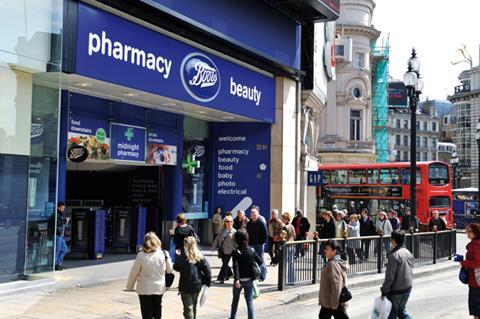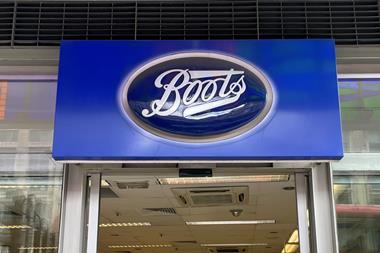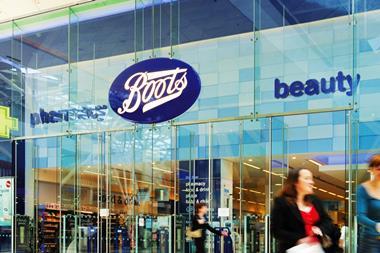
Boots’ fourth quarter sales were up 11.7% year on year, helping push full-year sales up 12.5%, as footfall growth boosted trading in the 12 months to the end of August.
It was Boots’ 10th consecutive quarter of market share growth, with gains across all main categories, according to the health & beauty retailer.
Footfall was up ahead of the wider market, with shopping centre, travel and flagship city centre stores seeing the biggest increase.
Skincare sales were up nearly 25% in the quarter, while the premium beauty category saw growth of 20%.
Boots.com enjoyed a 28.9% sales increase over the quarter, with orders from the retailer’s online doctor up 25%.
The online growth came despite Boots shelving plans to launch a third-party online marketplace – similar to that of rival Superdrug – in spring 2023.
Boots said value remained a key focus for shoppers, helping push sales of its Everyday essentials label up 25%. The number of active Advantage Card users was at a three-year high as more customers sought to benefit from the loyalty programme’s Price Advantage savings.
“I am really encouraged to see continued strong performance as the work that we have done to expand our ranges, drive value and innovate in beauty seems to be resonating extremely well with customers,” said Boots UK and ROI MD Seb James.
“We have great plans for the year ahead including our new Beauty store in Battersea, a further extension of our beauty category, expansion of our online doctor service and much more.”
A separate trading update from the retailer’s US owner Walgreens Boots Alliance revealed plans to cut costs by at least $1bn after the business made a net loss of $3.1bn for the full year, down from earnings of $4.3bn in the preceding 12 months.
The loss was partly driven by a $5.5bn after-tax charge for claims and litigation over its role in the US opioid crisis.
The fourth quarter net loss came to $180m, an improvement on the $415m net loss over the same period a year earlier.
Interim CEO Ginger Graham, who is due to be succeeded by new boss Tim Wentworth from 23 October, said: “Our performance this year has not reflected WBA’s strong assets, brand legacy, or our commitment to our customers and patients.
“In just six weeks, we have taken a number of steps to align our cost structure with our business performance, including planned cost reductions of at least $1bn, and lowered capital expenditures by approximately $600m.
“We anticipate seeing the impact of these actions in fiscal 2024, beginning in the second quarter. We are also intently focused on accelerating our profitability in the US healthcare segment.
“As we welcome our new CEO Tim Wentworth, who brings deep healthcare experience and the skills needed to propel WBA forward, along with the support of the board, I am confident in our company’s future and the ability to deliver greater value to our customers, shareholders, partners, and employees.”



















No comments yet